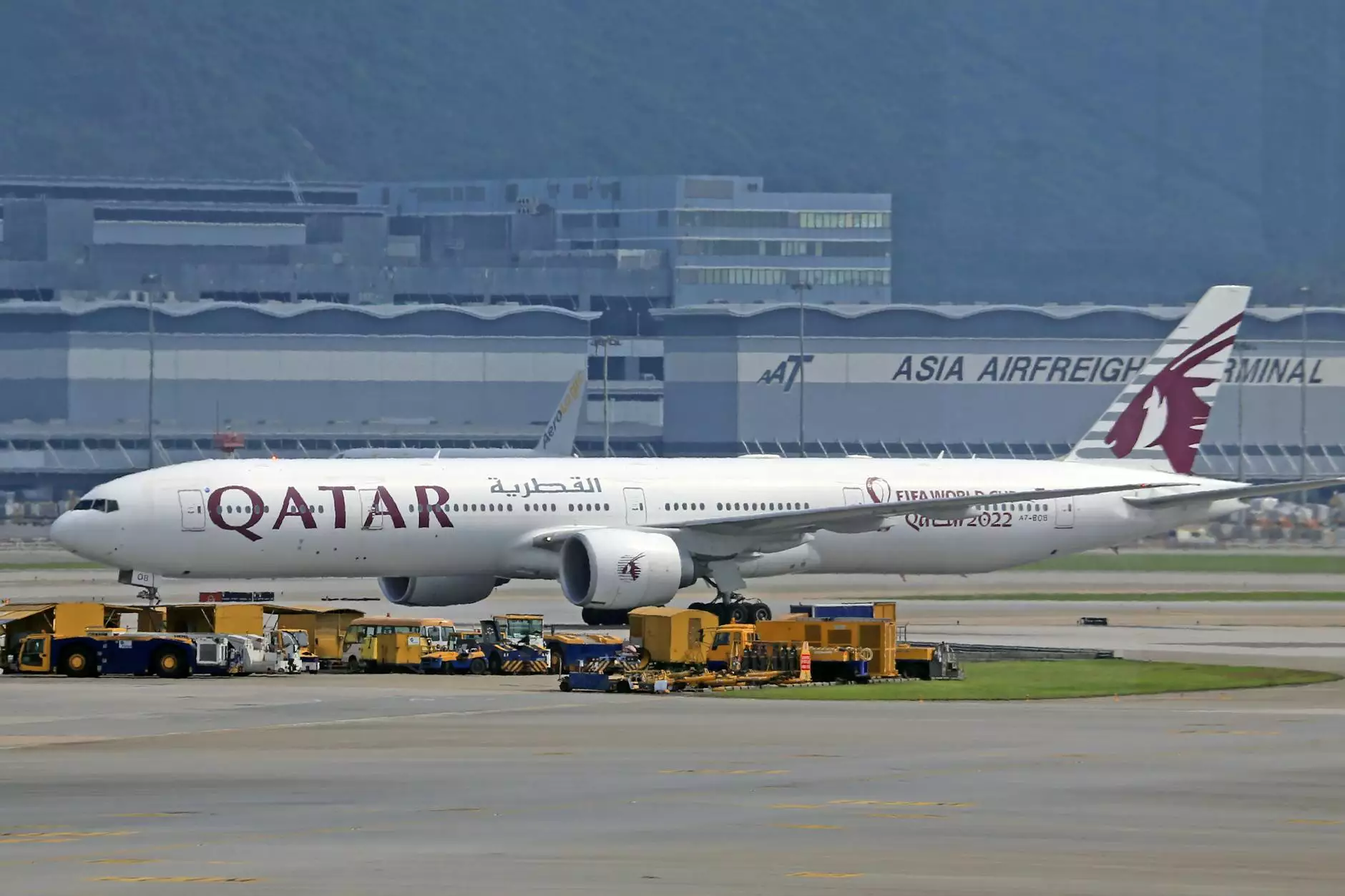The Comprehensive Guide to Air Freight Booking

In today’s fast-paced global economy, the need for efficient logistics and transportation is more crucial than ever. Among various methods available, air freight booking stands out for its speed and reliability, making it a preferred choice for businesses that require the prompt delivery of goods. This article delves deep into the world of air freight booking, shedding light on the processes, advantages, key players, and strategies for businesses aiming to optimize their shipping operations.
Understanding Air Freight Booking
Air freight booking refers to the process of reserving space for cargo on an aircraft. This involves coordinating with airlines, freight forwarders, and logistics companies to ensure that shipments are delivered on time and within budget. The process is crucial for businesses that rely on swift transportation to maintain their supply chains and satisfy customer demand.
The Importance of Air Freight Booking
Businesses consistently seek ways to enhance their logistical operations. Here are some reasons why air freight booking is vital:
- Speed: Air transport is the fastest mode of freight movement, significantly reducing transit times compared to sea or land transport.
- Reliability: With scheduled flights, air freight offers consistent timeliness and predictability, crucial for planning.
- Global Reach: Air freight allows access to international markets, enabling businesses to expand their reach beyond local boundaries.
- Security: Airports and air transport systems have robust security measures, ensuring that cargo is well protected.
How to Book Air Freight
The process of air freight booking can be intricate, but understanding the steps involved can simplify it significantly. Here’s a comprehensive guide on how to navigate through the booking process:
1. Determine Your Shipping Requirements
Before making a booking, assess your specific needs:
- What type of goods are being shipped?
- What are the dimensions and weight of the cargo?
- What is the desired delivery time frame?
2. Choose a Freight Forwarder
Enlisting the help of a freight forwarder can simplify the process. These professionals handle logistics, documentation, and communication with airlines. When selecting a freight forwarder, consider:
- Their experience and reputation in the industry.
- Their network and relationships with airlines and ground services.
- Cost-effectiveness and available services.
- Customer service and support availability.
3. Get Quotes and Compare Options
Once you identify potential freight forwarders, request quotes. Ensure that you understand what each quote includes — this could cover:
- All fees associated with the booking.
- Pickup and delivery options.
- Insurance coverage and liability.
4. Make Your Booking
After reviewing options, proceed with the booking. Provide your freight forwarder with the necessary documentation, including:
- Commercial invoice
- Packing list
- Any additional certificates (e.g., phytosanitary, certificate of origin)
5. Prepare for Shipment
As shipment time approaches, ensure that your goods are well packaged and properly labeled, ready for pickup. Clear any customs requirements if necessary, particularly for international freight.
Shipping Centers and Their Role in Air Freight Booking
Shipping centers are pivotal in the air freight booking process. These locations serve as hubs where cargo is consolidated before being forwarded to its destination. Understanding their function can enhance shipping efficiency:
Functions of Shipping Centers
- Consolidation: Shipping centers allow for the grouping of smaller shipments, optimizing space and reducing costs.
- Customs Clearance: Many shipping centers offer customs facilities, expediting the clearance of goods as they enter or leave a country.
- Storage: These centers often provide temporary storage solutions to accommodate cargo awaiting shipment or custom processes.
- Transloading: This process involves transferring cargo from one mode of transport to another, often enhancing flexibility in shipping options.
Transportation Logistics: A Key Component of Air Freight Booking
Efficient transportation logistics ensure that air freight shipments are handled seamlessly from origin to destination. Here are essential considerations in logistical planning:
1. Last-Mile Delivery
One of the most critical phases of logistics is last-mile delivery. This is the final step in the transportation process, where goods are delivered from a transportation hub to the final destination. Efficient last-mile delivery can significantly impact customer satisfaction.
2. Coordination with Ground Transport
Incorporating ground transport solutions such as trucks and vans ensures smooth transfer of cargo. Coordination between air freight and ground shipping can lead to reduced delays and better service experiences.
3. Time Management
Managing time effectively throughout the logistics process is paramount. Avoiding delays during the booking and departure phases requires well-planned timelines and contingency strategies.
Utilizing Airports for Efficient Air Freight Booking
Airports function as key nodes in the air freight infrastructure, enabling swift transportation of cargo across various distances. Businesses should leverage technological advancements and airport facilities effectively:
Key Airport Considerations
- Airport Location: Proximity to major markets can influence transportation times and costs.
- Facilities: Choose airports equipped with advanced facilities for handling cargo, such as temperature-controlled storage for perishable goods.
- Performance Metrics: Research on-time performance statistics of airports to ascertain reliability and efficiency levels.
The Future of Air Freight Booking
The air freight industry is ever-evolving, with emerging technologies playing a crucial role in shaping its future. Here are some trends that may impact air freight booking:
1. Automation and AI
Automation and artificial intelligence are changing how businesses handle logistics and operations. From automated booking systems to AI-driven route optimization, these technologies promise to make air freight more efficient and cost-effective.
2. Sustainability Initiatives
In response to growing environmental concerns, airlines and freight companies are increasingly adopting green practices. This includes optimizing fuel usage and reducing carbon emissions throughout the air freight process.
3. Blockchain Technology
Blockchain is set to enhance transparency and security in the supply chain. By providing a decentralized ledger of transactions, businesses can ensure that their cargo remains secure and trackable throughout its journey.
Conclusion
In summary, mastering the art of air freight booking is vital for businesses seeking to enhance their supply chains, reduce costs, and achieve timely delivery of goods. With thorough preparation, effective logistics management, and a keen understanding of the air freight landscape, businesses can navigate the complexities of this sector and reap the benefits of rapid transportation solutions.
For more information and to explore your air freight options, visit cargobooking.aero, your trusted partner for streamlined and efficient logistics services.









